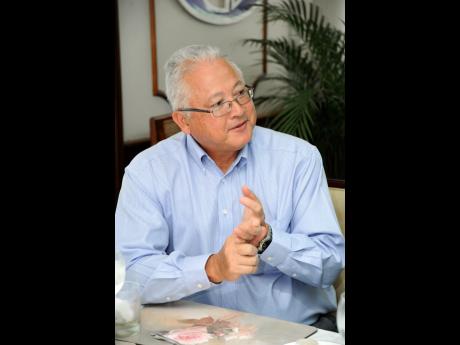Editorial: Chucking illogic
It is Delroy Chuck’s right to fulminate. But Mr Chuck ought to know that he is more likely to change minds with logic and reason than with mere noise. Of course, threats sometimes work, which, of course, doesn’t necessarily mean physical harm.
It can be professional or social exclusion or being made to feel guilty for acting against the will of the group, even though it may be in the interest of the society. So it is that Mr Chuck — recently returned as shadow justice minister after his fence-mending with Opposition Leader Andrew Holness — has become brawny against Jamaica Labour Party (JLP) senators who might vote with the Government on legislation to make the Caribbean Court of Justice (CCJ) Jamaica’s court of last resort. At present, the Judicial Committee of the Privy Council, based in England, has, for more than 180 years, been formally Jamaica’s final court.
It has never sat in Jamaica, although it has a handful of times convened in other Commonwealth nations, for which it is also their final court. A few times, too, non-English judges have sat on its panels, like the former Jamaican chief justice, Edward Zacca, once did.
MAJORITY VOTE
A simple vote by the majority of the members of Parliament can excise Section 110 of the Constitution, thus ending appeals to the Privy Council. But replacing the Privy Council with a court of superior jurisdiction to Jamaica’s Court of Appeal would require that the new court be entrenched, at least, to the same level of the Court of Appeal.
The Government has been proceeding on the basis that the bills for Jamaica to accede to the criminal and civil jurisdiction of the CCJ requires passage by two-thirds of the members of both Houses of Parliament, which would need at least one of the JLP’s eight members of the Senate voting with the Government — against which Mr Chuck has been muscling up.
He told party supporters that not only would any such backers of the bills be “embarrassing themselves”, but would cause the JLP to spend money to challenge the constitutionality of the legislation through the court system.
He added : “Let me make it further clear. If one, two or all eight of them go ahead and support the bills, the leader of the Jamaica Labour Party, the spokesman on justice and the Jamaica Labour Party will take those three bills right to the Constitutional Court, right up to the Privy Council, to show that they are making a mockery of the Jamaican Constitution.”
On this matter, we prefer to place our faith in the constitutional acumen of Lloyd Barnett rather than Mr Chuck - despite the latter’s chest-thumping. It was Dr Barnett, on behalf of the Independent Jamaica Council of Human Rights, who in 2004 marshalled the constitutional process by which the CCJ was being made Jamaica’s final court. It was he who made the constitutional argument against Mr Holness’ use of presigned, but undated, letters to fire senators — those letters to be used ostensibly to prevent senators voting in favour of the CCJ. Dr Barnett is not only a strong supporter of the efficacy of the CCJ, but the process by which it is being effected in Jamaica.

